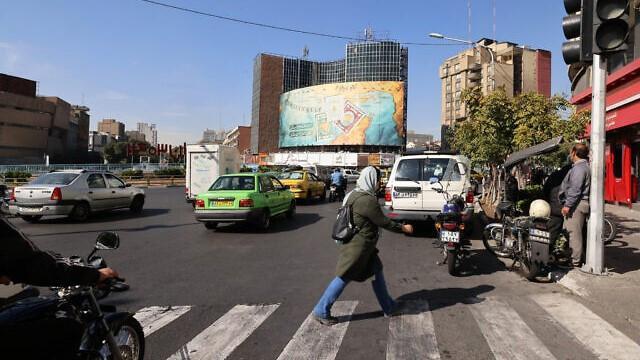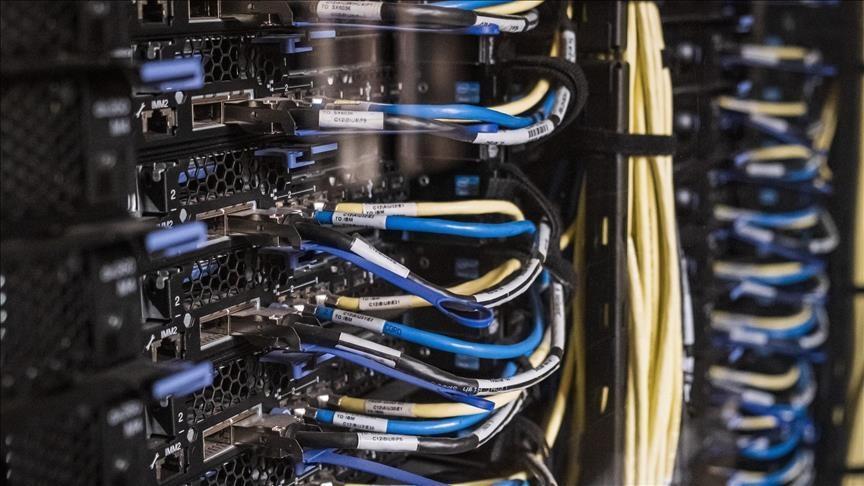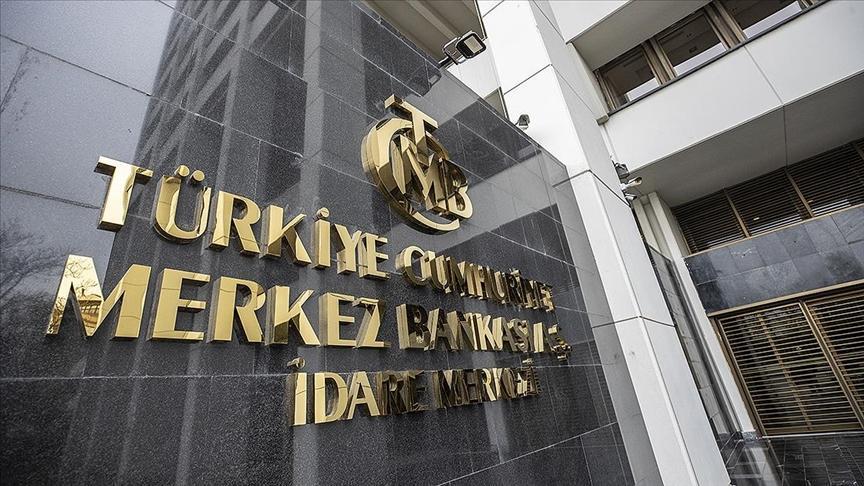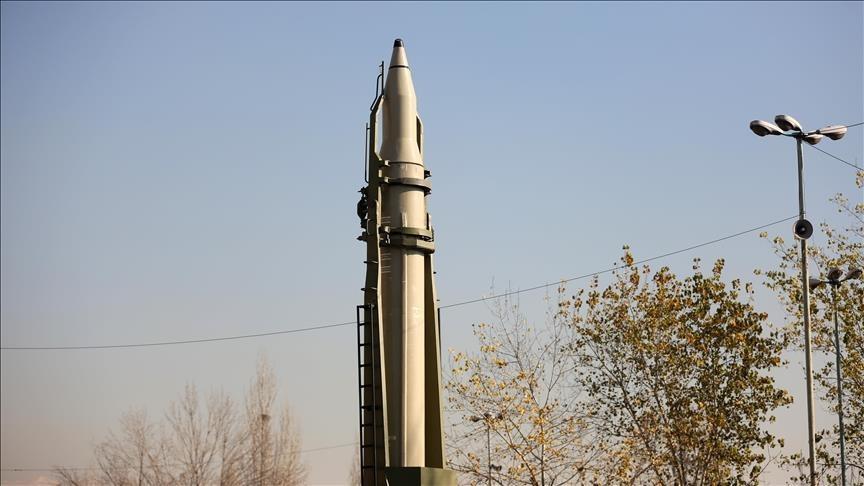Israelis, Palestinians ready for historic prisoner swap
JERUSALEM - Agence France-Presse
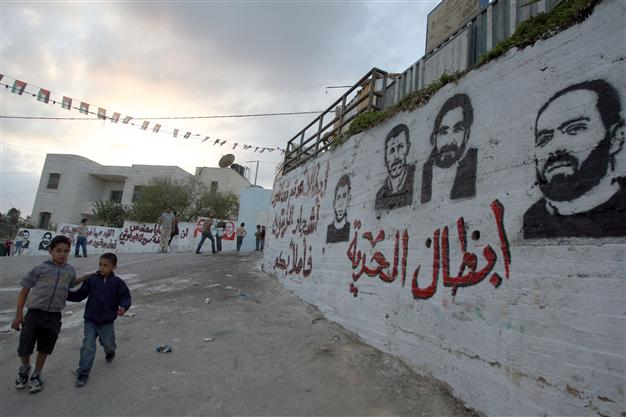
Graffiti images of the two longest held prisoners Nael Barghouti (2nd L) and Fakhri Barghouti (2nd R), both being held in Israeli jails for the past 35 years, are seen daubed on the wall in the village of Kober on October 16, 2011, in the Israeli occupied West Bank. AFP photo
Israel was on Monday preparing to release 477 Palestinian security prisoners in order to secure the freedom of captive soldier Gilad Shalit following a landmark deal with Hamas.
The agreement will see Israel free a total of 1,027 Palestinians in return for Shalit's freedom in what is the highest price ever paid by the Jewish state for one person.
If all goes to plan, it will be the first time in 26 years that a captured soldier has been returned to the Jewish state alive.
In Israel, the nation was waiting with bated breath to see the first images of the now 25-year-old soldier, who has been held incommunicado for over five years since his capture by three Gaza-based militant groups on June 25, 2006.
His family have been readjusting and preparing for the long-awaited return of their son to their home in northern Israel, after finally moving out of the Jerusalem protest tent they called home for nearly 16 months.
Throughout the Palestinian territories, similar preparations were taking place.
Tuesday's operation will see Israel freeing 477 security prisoners, including hundreds who are serving life sentences for killing Israelis.
The Palestinians say the detainees, among them 27 women, are political prisoners, but Israelis see them as terrorists, many of them with blood on their hands.
On Sunday, Israel officially published the list of 477 prisoners to be released in the first stage of the exchange, giving the public 48 hours to file legal challenges to the deal.
The High Court was on Monday to hear four petitions against the release from the families of attack victims, in a procedure which must first be exhausted before the exchange operation can go ahead.
The court has never in its history overturned a government decision to free prisoners involved in militant attacks.
Among the prisoners to be released are Walid Anjas, who received 36 life sentences over a 2002 attack on a Jerusalem bar that killed 11 Israelis, and Nasr Yateyma, who was convicted of planning the 2002 Passover bombing which killed 29.
Others were involved in kidnapping and killing Israeli soldiers; there are also several senior Hamas leaders slated for release, including Yehia al-Sinwar and Rawhi al-Mushtaha who helped found the movement's intelligence arm, al-Majd.
Israeli officials have acknowledged the deal will be painful for the relatives of those killed in militant attacks, but said the agreement was the best accord that could be reached.
Under the deal, 137 Palestinians from Gaza, 47 from the West Bank, and eight from east Jerusalem will be allowed to return to their homes. Six Arab-Israelis will also be sent home.
Another 49 will be returned to the West Bank but with restrictions, and six will return to east Jerusalem under similar conditions.
Another 163 detainees -- 145 from the West Bank and 18 from east Jerusalem -- will be exiled to Gaza, although 18 of them will be able to return home after a period of three years. Forty prisoners, including 26 from the West Bank, 13 from east Jerusalem and one from Gaza, will be banished abroad.
All of the 27 women prisoners will be permitted to go to their homes, although one Arab Israeli woman is to be exiled to Gaza.
A second group of 550 prisoners is to be released in the coming two months although the names have yet to be decided.
In the Gaza Strip, the ruling Hamas movement, which negotiated the prisoner swap deal with Israel via Egyptian mediation, declared that Tuesday would be a national holiday.
And across the West Bank and east Jerusalem, parties were planned to welcome home detainees, with three days of celebrations to take place in Palestinian towns and cities.



